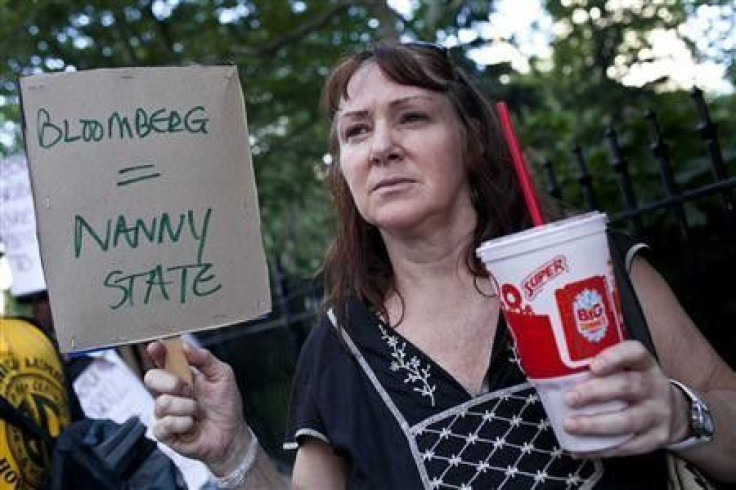New York Bans Sugary Drinks At Restaurants, Movie, Broadway Theaters

In a move aimed at curbing obesity, New York City has banned the sale of sugary drinks and supersized sodas in establishments that come with food-service license.
Stating, "We cannot continue to have our kids come down with diabetes at age 6," Mayor Michael Bloomberg rejected the suggestions that the rule constituted an assault on personal liberty, adding that restaurant customers could buy as much soda as they wanted as long they carried it in multiple containers, the Associated Press (AP) reported.
Noting that the inconvenience was worth the public health benefit, Bloomberg drew parallel with measures taken to phase out lead in household paint.
However, New Yorkers do not seem to have taken kindly to the ban. A New York Times poll showed that six in 10 people opposed the restrictions.
The move is likely to take effect in March 2013 barring any court action. Public health experts, restaurant and soft drink industry will keenly monitor how it goes down among the city dwellers who are a vociferous bunch.
Apparently, the restrictions do not apply to supermarkets and convenience stores because the establishments are not subject to Board of Health regulation. The restrictions do not extend for beverages made of milk or unsweetened fruit juice.
The move is expected to usher in a change in the attitude towards overeating in similar way Americans regard smoking as inconsiderate.
Approved by an 8-0 vote with one abstention, the mayoral board disapproved sugary drinks larger than 16 ounces in almost every place they were sold. Violators of the ban that do not include diet sodas face a $200 fine, Reuters has reported.
In an indication that city remains divided on the issue, opponents cast the issue as an infringement on personal freedom. Reportedly, they intend to move court with hope of blocking or overturning the measure that takes effect in March.
On Twitter, Bloomberg heralded the measure's passage as "the single biggest step any government has taken to curb #obesity. It will help save lives."
"I see the crisis every single day and I feel to not act would be criminal," said Susan Klitzman, director of Hunter College's Urban Public Health Program, according to Reuters.
According to the Organization for Economic Co-operation and Development (OECD), close to one-third of Americans are obese and about 10 percent of the nation's healthcare bill is tied to obesity-related diseases, such as Type 2 diabetes, heart disease and hypertension.
Data from The Centers for Disease Control and Prevention note that obesity rates among Americans continue to rise. The OECD projects that two out of three people will be overweight or obese in some developed countries by 2020.
Commending the move, Health Commissioner Thomas Farley noted that the measure was likely to be copied elsewhere across the nation - and even the world - as were the city's restrictions on trans fat and smoking.
© Copyright IBTimes 2024. All rights reserved.











